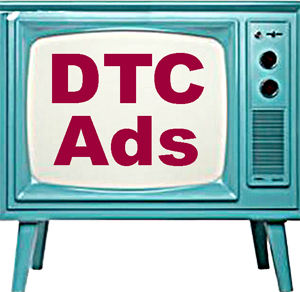Evaluating Rx & OTC DTC TV Ads Few Are Outright False But Many May Be Misleading Between 2004 and 2013, FDA’s Office of Prescription Drug Promotion sent nearly 300 Warning and Untitled letters to pharma companies citing violations in Rx drug advertising. Forty percent of those citations were for risk omission or minimization.
Between 2004 and 2013, FDA’s Office of Prescription Drug Promotion sent nearly 300 Warning and Untitled letters to pharma companies citing violations in Rx drug advertising. Forty percent of those citations were for risk omission or minimization.
The Federal Trade Commission (FTC) oversees advertising for non-prescription, over-the-counter (OTC) drugs.
While FDA and FTC share a common goal, they “do not apply the same working definition of false and misleading advertising, and have different standards for evidence to support truthful and not misleading claims,” according to authors of a recent study published in the Journal of General Internal Medicine. The authors — Adrienne E. Faerber of The Dartmouth Institute for Health Policy & Clinical Practice and David H. Kreling of The University of Wisconsin-Madison School of Pharmacy — posit that the differences between the FDA and the FTC regarding working definitions and evidence standards “may be resulting in differences in the amount of false or misleading advertising that is occurring for prescription and nonprescription drugs.”
Their study, which is summarized in this article, evaluated claims in consumer-targeted television drug advertising against pharmacological evidence in order to determine the frequency of false or misleading claims made in these ads.
Topics include:
- Differing Standards of Evidence
- Vanderbilt Television News Archives
- Study Methodology
- False Claims in DTC Ads vs. OTC Ads
- The Slippery Slope Between Truth & Falsehood
- OTC Drug Ads Not Well Scrutinized by FTC
- Key Takeaways for Consumers & Regulators
Download the full text PDF file here:
www.pharma-mkting.com/news/pmnews1209-article02.pdf
PMN1209-02
Issue: Vol. 12, No. 9: December 2013



![6 Digital Tools at the Center of Healthcare Digitalization [INFOGRAPHIC]](http://ec2-54-175-84-28.compute-1.amazonaws.com/pharma-mkting.com/wp-content/uploads/2021/04/6DigitalTools_600px-218x150.jpg)




![6 Digital Tools at the Center of Healthcare Digitalization [INFOGRAPHIC]](http://ec2-54-175-84-28.compute-1.amazonaws.com/pharma-mkting.com/wp-content/uploads/2021/04/6DigitalTools_600px-100x70.jpg)




